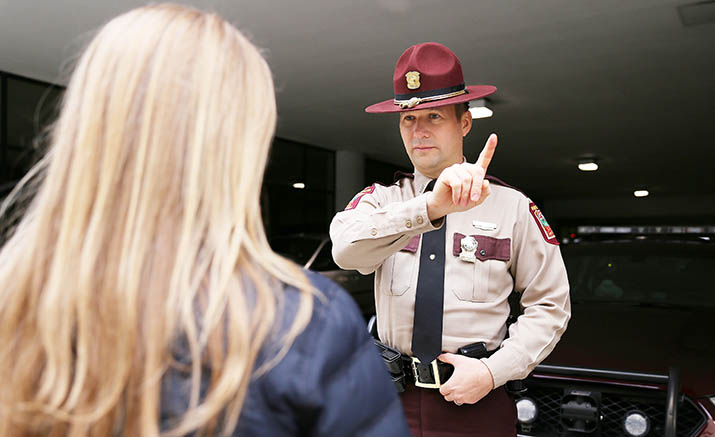You got a DWI. Now what?
May 2, 2019

Let’s face it: The best way to come back from a DWI is not to get one in the first place. But alcohol impairs judgment, so if you don’t plan ahead for a sober ride, make the poor choice to get behind the wheel, and get caught, here’s what you can expect.
When you get pulled over, the law enforcement officer will most likely run you through a battery of field sobriety tests. If they determine you are impaired, you will be arrested for impaired driving.
The officer will then transport you to a police station or hospital where they will either request a breath test or direct that you provide a blood or urine test, depending on the circumstances.
If your test result is .08 or above or you refuse this test, you will be charged with additional crimes, and your driving privileges will be revoked. Keep in mind, though, that you’ll get a seven-day permit to drive first. It’s a good idea to use that week to plan your transportation so that you can get around starting on the eighth day after your arrest. The time you’ll be without your license depends on factors such as how many DWIs you’ve had before, how high your BAC was, and whether you’re younger than 21.
When your license revocation time is up, you’ll need to pay a reinstatement fee of $680 to get your license back. You’ll also have to take the class D knowledge test and apply for your new driver’s license.
If your BAC is 0.16 or higher on your first offense, or if it’s your second (or more) DWI offense, you must use an ignition interlock device to legally regain driving privileges. If you choose not to use ignition interlock, you won’t have legal driving privileges for at least one year. More serious DWI offenders are required to enroll in Ignition Interlock Program for a specific amount of time to regain full driving privileges. These devices are about the size of a hand-held calculator and are equipped with a blowing tube. In order to start the car, you have to blow into the tube, and if the device finds that your BAC is at 0.02 or above, the car won’t start. The amount of time you have to drive with an ignition interlock device also depends on the BAC for your current offense and the number of DWIs you’ve had.
The consequences of DWIs for commercial license holders are harsher. The BAC limit is 0.04, and if a commercial driver tests at or above that, they’re disqualified from driving a commercial vehicle for a year. If they get a second offense, they’re disqualified for life.
The big takeaway is this: Don’t drive drunk. As you can see, DWIs are expensive and inconvenient – even for first-time offenders, a DWI can cost you an average of $10,000. But more importantly, drunk driving can lead to serious injury or death for yourself or others. Stay at the location of the party, find a cab or ride-share option, use public transportation, or designate a sober driver – just don’t get behind that wheel when you’ve been drinking.

